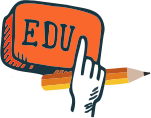
Education has always been a cornerstone of societal growth, shaping minds and futures. In today’s fast-paced world, the importance of education has only deepened, as knowledge becomes the most valuable currency. From classrooms to digital platforms, education evolves continuously, molding individuals not just for employment, but for holistic development.
The Shift to Lifelong Learning
Traditional education once focused solely on academic knowledge confined to a specific age or period in life. However, in the current landscape, there’s an increasing emphasis on lifelong learning. As industries evolve, professionals are required to update their skill sets continually. This evolution has led to the rise of business learning, where employees and entrepreneurs alike seek to enhance their understanding of modern practices, such as digital marketing, leadership, and technological innovation. Lifelong learning is now a vital part of personal and professional development.
Education Beyond the Classroom
The concept of education has expanded beyond the physical boundaries of a classroom. With the advent of online platforms, learning is more accessible than ever. This democratization of education allows individuals from all walks of life to gain knowledge without the constraints of geography or traditional institutions. Notably, platforms such as acbc2023.org offer unique insights and resources, enhancing the reach of education in specialized fields.
Preparing for the Future
In a world driven by technological advancement, the educational system is tasked with preparing students for careers that may not yet exist. As automation, artificial intelligence, and global collaboration become more prominent, curricula must adapt to equip learners with not only technical skills but also creativity, critical thinking, and emotional intelligence. These soft skills are increasingly becoming as important as academic knowledge in navigating a complex world.
Conclusion
Education is no longer just a means to an end; it is a lifelong pursuit that empowers individuals to adapt to a rapidly changing world. Whether through formal education or business learning initiatives, the need to acquire new skills and knowledge is constant. The future belongs to those who remain curious and committed to learning, in whatever form it may take.

